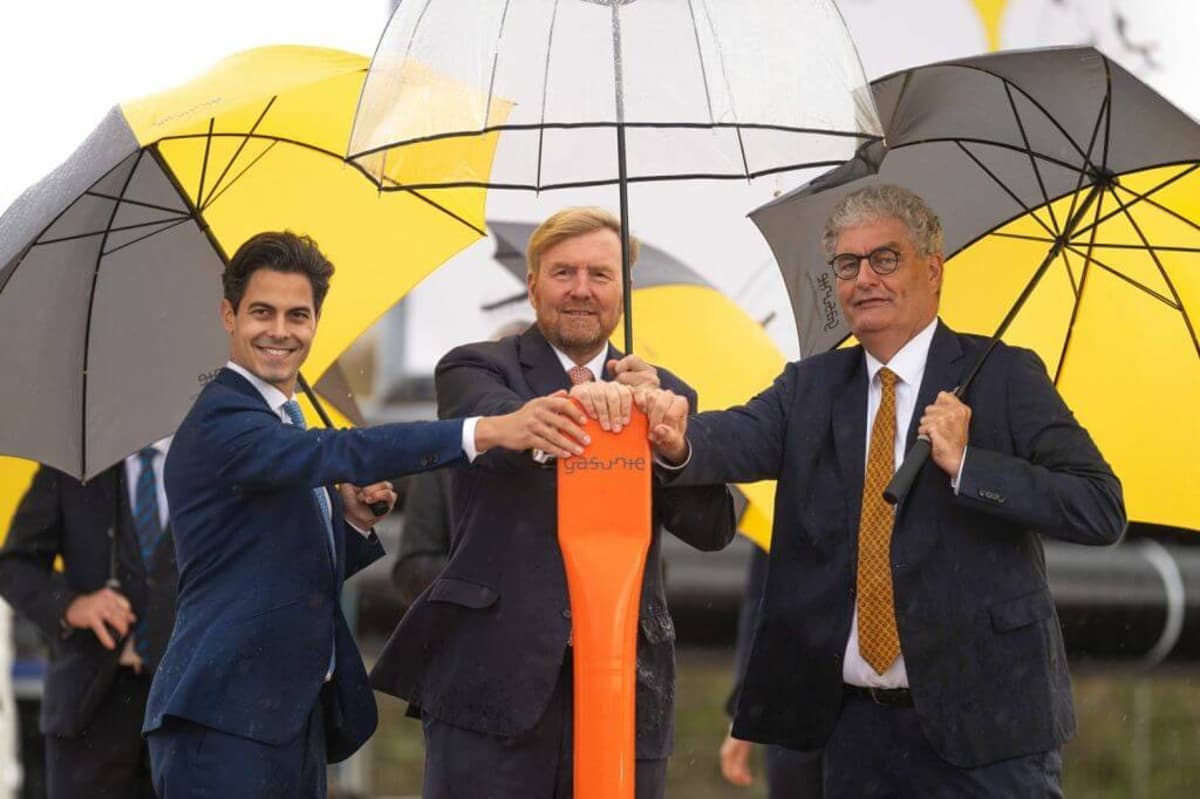Dutch Government Commits to Hydrogen and CO2 Pipelines Amid Delays
Key Ideas
- The Dutch government reaffirms commitment to hydrogen and carbon dioxide pipelines despite delays, aiming for completion by 2031-33.
- CEO of the Port of Rotterdam Authority emphasizes the importance of infrastructure for industrial clusters, sustainability, and industry future.
- Initial pipeline plans include hydrogen, CO2, propane, and C4-LPG connections, with exploration of using ammonia as a hydrogen carrier.
- Challenges faced in pipeline development include insufficient demand, with other projects like the Denmark-Germany hydrogen pipeline also experiencing delays.
The Dutch government has restated its dedication to advancing hydrogen and carbon dioxide pipeline projects, despite facing delays that have now pushed completion targets to around 2031-33. The CEO of the Port of Rotterdam Authority, Boudewijn Siemons, hailed this decision as vital for the industrial clusters in Rotterdam, the Netherlands, Germany, and Northwest Europe, highlighting the role of infrastructure in driving sustainability investments. Plans for the Delta Rhine Corridor (DRC) now include the implementation of a hydrogen pipeline by 2031-32 and CO2 infrastructure by 2032-33.
The project's origins trace back to 2021 when a feasibility study commenced to assess the construction of pipelines connecting Rotterdam to Chemelot and North Rhine-Westphalia, incorporating hydrogen, CO2, propane, and C4-LPG. The consideration of using ammonia as a hydrogen carrier was explored, although this remains a future prospect needing more research. Collaborating partners such as BASF, Gasunie, Open Grid Europe, and Shell are crucial to this infrastructure initiative.
Despite challenges like insufficient demand posing obstacles for pipeline developers, stakeholders remain committed to expediting the hydrogen pipeline's construction to stimulate the hydrogen market. This development is welcomed by companies eyeing investments in hydrogen production, storage, and procurement. Notably, other projects, like the Denmark-Germany hydrogen pipeline, have also encountered delays, emphasizing the complexities and varying maturity levels of such infrastructure ventures. The collective efforts and determination of key players are crucial in navigating and overcoming these hurdles to realize the potential of hydrogen and CO2 pipelines in advancing sustainable energy solutions.
Topics
Projects
Renewable Energy
Infrastructure
Collaboration
Project Delays
Pipeline Development
Industry Clusters
Latest News
